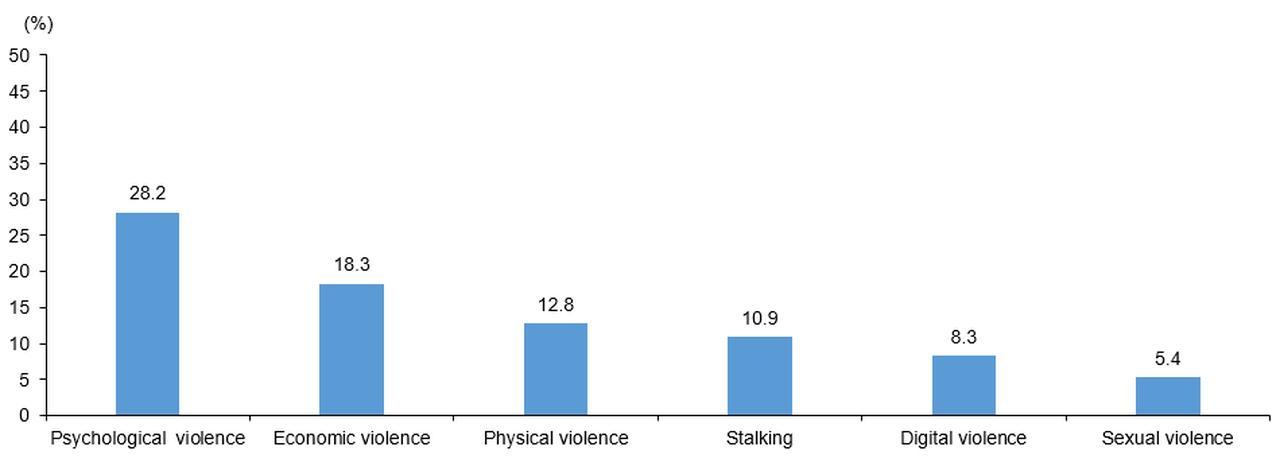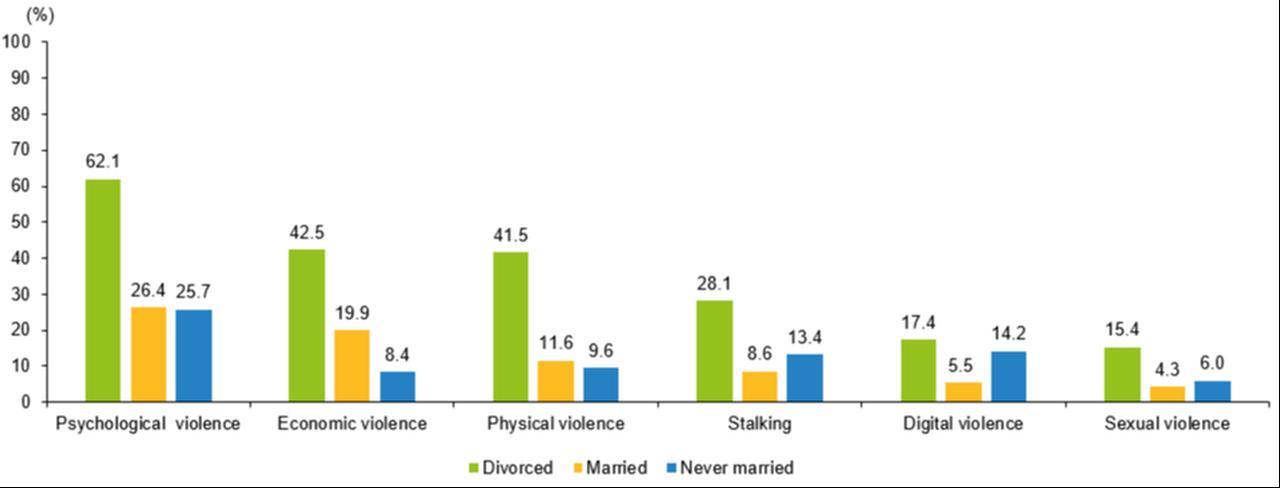
Türkiye’s first nationwide survey on violence against women in a decade found that 28.2% of women have experienced psychological violence, 18.3% economic violence, and 12.8% physical violence.
The "Türkiye Survey on Violence Against Women 2024" was carried out by the Turkish Statistical Institute (TurkStat), with researchers interviewing 18,275 women across the country between November 2024 and January 2025.

The findings showed that women aged 35 to 44 were most exposed to physical violence, with 14.7% reporting such incidents.
Divorced women recorded the highest overall rates: 62.1% experienced psychological violence, 42.5% economic violence, and 41.5% physical violence.
Education also played a role, as 31.8% of women with no completed schooling reported economic violence, compared with 8.9% of those with higher education.
Digital violence—defined as harassment, surveillance, or threats through digital platforms—was reported for the first time. Strangers accounted for 62.3% of such cases, while current or former partners made up 15.7%.
The regional breakdown indicated that physical violence was most prevalent in Northeastern Anatolia, where 25.9% of women reported such experiences, compared to just 8.8% in Southeastern Anatolia.
By employment sector, 34% of women facing psychological violence worked in the private sector, while 31.9% were employed in the public sector.
Economic violence was reported by 21.1% of private-sector employees and 10.6% of public-sector workers.

Looking at the last 12 months, 11.6% of women reported psychological violence, 3.7% economic violence, 3.1% stalking, 2.6% physical violence and 0.9% sexual violence.
The survey found that women aged 15 to 24 were most vulnerable, with 15.2% reporting psychological violence and 7.3% digital violence.
Reasons cited for violence by intimate partners included anger control problems (21.7%), upbringing (13.3%), and financial difficulties (13%). Jealousy was mentioned most often by women aged 15 to 24.
Family and Social Services Minister Mahinur Ozdemir Goktas said the results would form the basis for new strategies.
She emphasized that Türkiye would enter "a new period of prevention strategies based on scientific data," adding that the findings would guide the upcoming Fifth National Action Plan on Combating Violence Against Women for 2026–2030
The ministry plans to publish the data on a digital platform, allowing researchers, civil society organizations, and the public to access it.
New initiatives will target digital violence, support programs for survivors, and expand cooperation with employment agencies and municipalities.
Goktas underlined that Türkiye maintains a "zero-tolerance policy" toward violence against women, stating that "even a single case cannot be ignored."